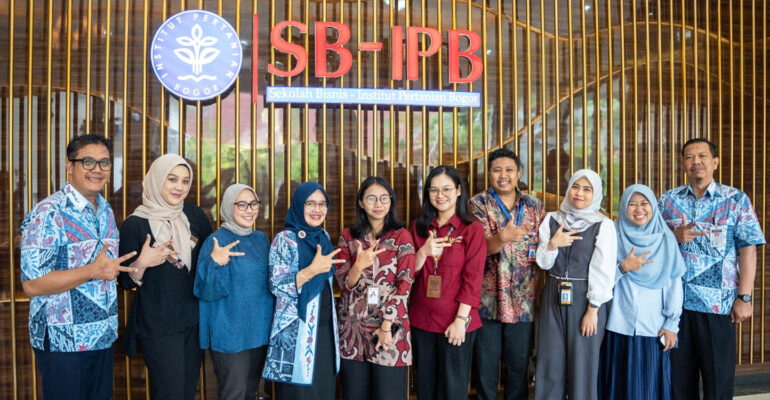School of Business IPB University Receives “Vulnerable Group Friendly Public Services” Award from KemenPANRB

School of Business (SB) IPB University once again proved its commitment in providing public services that are inclusive and responsive to the needs of all community groups.
Based on the results of the assessment conducted by the Ministry of Administrative Reform and Bureaucratic Reform (PANRB) in 2024, SB IPB won the “Best” category in the Vulnerable Group Friendly Public Service Development program with a score of 91.90.
“This award confirms SB IPB’s dedication to continue creating a service environment that supports all individuals, including vulnerable groups such as children, people with disabilities, the elderly, and people with special needs,” said Dean of SB IPB, Prof Noer Azam Achsani.
Through various service innovations and humanist approaches, Prof Azam said, SB IPB seeks to provide a friendly, comfortable, and accessible experience for all stakeholders.
In an effort to create public services that are friendly to vulnerable groups, SB IPB implements various strategies. One of them is accessible facilities through the provision of physical and digital facilities that are friendly to all groups, including accessibility for people with disabilities.
SB IPB also prepares special training for staff to increase sensitivity and ability to serve vulnerable groups. Not only that, the technology-based service system continues to be improved to facilitate access and interaction with various community groups.
“SB IPB expresses its highest appreciation to all those who have contributed to this achievement, including students, lecturers, education personnel, and partners,” said Prof Azam.
This success, according to him, is an encouragement to continue to improve the quality of public services that are inclusive, friendly, and oriented towards the welfare of the community.
“Let us together actualize public services that are better, equitable, and reach all circles for an inclusive future,” he invited. (IAAS/RUM)



